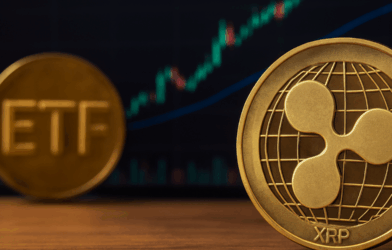In a strategic turn that signals evolving ambition, Gemini—the crypto exchange founded by the Winklevoss twins, Tyler Winklevoss and Cameron Winklevoss—is reportedly preparing to launch trading in event-based contracts via a new derivatives exchange. The goal: to tap into a rapidly expanding domain where bets on real-world outcomes are becoming mainstream.
The company has filed with the U.S. Commodity Futures Trading Commission (CFTC) for designation as a derivatives exchange (often termed a “designated contract market”) capable of offering event-contracts that hinge on political, financial, sports or economic outcomes. Internal discussions at Gemini reportedly point to “launching as soon as possible.”
This is more than a side-project. It reflects both opportunity and urgency for Gemini. The environment—regulatory, technological and demand-driven—is shifting, and Gemini appears to want to reposition itself.
Why Now? The Pull of Prediction Markets
Prediction markets are rising fast. Platforms already active in this space show surging volumes, attesting to both growing public appetite and institutional interest. One leading platform recently saw weekly volumes exceed one billion dollars—for the first time. Another major player is poised for a U.S. reintegration with similar volume thresholds.
Gemini’s timing makes sense in this context: the firm recently went public, has faced headwinds in its core crypto-exchange business, and appears to be seeking a growth driver beyond token trading. Offering event contracts provides a way to diversify and potentially capture a new audience—one, perhaps, less sensitive to the volatile token market than typical crypto users.
Moreover, the regulatory landscape is changing. The CFTC has gradually signalled openness toward event contracts when properly regulated, distinguishing them from unregulated gaming or sports-betting activities. That emerging clarity gives firms like Gemini a window to act while competitors are also moving.
The Gemini Strategy: How It Could Play Out
Gemini’s filings and public disclosures suggest several key elements to its strategy:
- Own Exchange Infrastructure — Rather than just use a partner platform, Gemini is pursuing its own derivatives exchange licensing, which would give it full control over product design, listing rules, revenue streams and user experience.
- Event Contract Offering — The types of contracts under consideration reportedly include “economic, financial, political and sports” events. That means users could trade contracts like “will X happen by Y date?” with payoff tied to binary or probabilistic outcomes.
- Leveraging the Public Listing — Gemini went public in September, raising hundreds of millions in its IPO and achieving a multi-billion dollar valuation. The new business line provides a narrative of expansion and innovation for investors concerned about stagnation in core crypto exchange activity.
- Responding to Market Pressure — According to available filings, Gemini has seen revenue decline and losses mount in recent quarters. A new product line gives the company something to show beyond the current exchange business, which may face saturation and intense competition.
- Competing in a Crowded Field — While Gemini is moving into this space, it is far from first. Firms such as Kalshi, Inc. (already CFTC-registered) and Polymarket (preparing for U.S. return) are already well ahead in prediction-market volume terms. Gemini will need to carve out differentiation—whether via user experience, access, regulation credibility or product breadth.
Opportunities and Risks
The opportunity is compelling: prediction markets offer a novel, information-driven product that sits at the intersection of trading, analytics and speculation. For crypto-native firms, this is a natural extension—leveraging skill sets in derivatives, digital platforms and global access.
From Gemini’s perspective, success could bring:
- A new revenue stream independent of token-price swings.
- Access to a broader user base that may include non-crypto traders.
- Strategic positioning as a regulated derivatives player, not just a digital-asset exchange.
- First-mover or fast-follower advantage in U.S. regulated event contracts.
But the risks loom large:
- Regulatory uncertainty remains. While the CFTC is more open, state gaming regulators, and legal challenges around classification of event contracts, still cloud the horizon.
- Execution complexity is high: a derivatives exchange demands robust infrastructure, compliance, surveillance, risk-management, clearing and settlement systems.
- Competition is intense, and margins may be pressured. Existing players have scale, partnerships, and brand recognition in the prediction-market space.
- The core crypto business remains fragile: if that business continues to suffer, the new initiative may simply take too long to offset losses or change market perception.
What This Means for the Broader Market
Gemini’s move signals a broader shift in the crypto and fintech ecosystem: the blending of crypto exchanges, derivatives markets and real-world event speculation. What began as niche peer-to-peer betting on election outcomes or sporting events is being formalised into regulated, exchange-based products with institutional attention.
It also suggests that the “crypto exchange” label is evolving. Exchanges are increasingly looking beyond token trading to build diversified financial-services platforms—with derivatives, structured products, debt, lending, and now event contracts. For investors and users, that means the lines between crypto-platform, brokerage and derivatives exchange are blurring.
Finally, it raises a question: which firms will make the jump to being trusted, regulated hubs for non-token risk-taking? That may depend on regulatory resilience, operational maturity and the ability to scale new products while retaining customer trust.
Key Takeaways
- Gemini is moving into prediction markets via a filing with the CFTC to operate an exchange offering event-outcome contracts.
- The timing reflects strong growth in prediction-market volumes and a need for growth beyond token trading.
- Success will require regulatory clarity, operational excellence and competitive differentiation.
- The development is a symptom of a broader trend: crypto-firms evolving into full-fledged financial-services platforms.
- For users and investors, it means more ways to speculate on real-world events via digital platforms—but also more complexity and regulatory risks.
In short, Gemini’s pivot to prediction markets is a bold bet. If executed well, it could reshape its business and contribute to the maturation of the broader crypto-derivatives ecosystem. If not, it may simply highlight how rapidly the competitive landscape is moving and how difficult it is to stay ahead.











